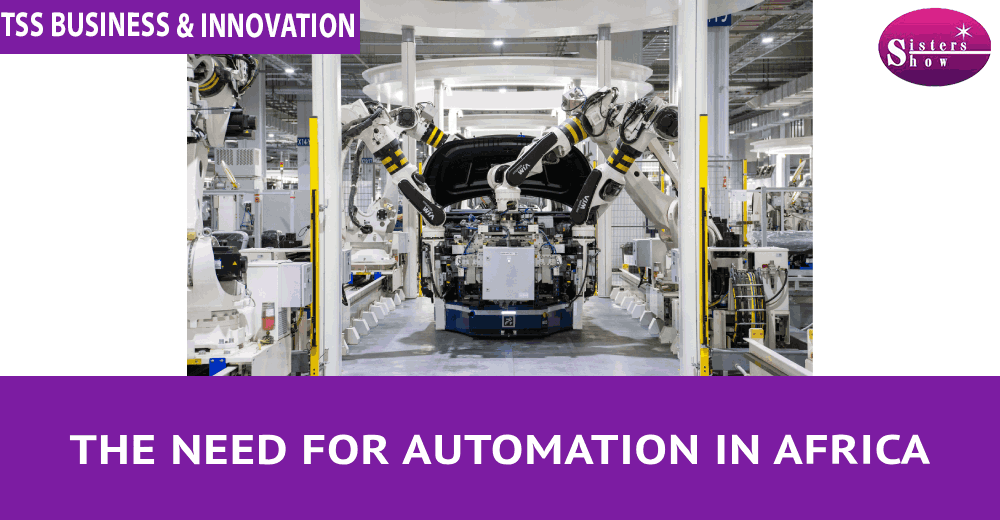
The Need for Automation in Africa
Automation, the process of using technology and computerized systems to perform tasks efficiently, has the potential to revolutionize industries across Africa. By minimizing errors, accelerating processes, and enhancing productivity, automation can bring transformative benefits to sectors such as business, healthcare, agriculture, and beyond.
A Brief History of Automation
The concept of automation was first introduced in the automotive industry in 1946 by Henry Ford, who developed the assembly line to streamline car manufacturing. Since then, automation has evolved into a powerful tool that integrates various systems, reducing reliance on manual labor and increasing efficiency. Today, it spans industries worldwide, revolutionizing how tasks are performed and systems are managed.
Automation in Agro-Processing
In Africa, agro-processing remains a cornerstone of the economy, yet automation in this sector is still in its infancy. Surveys conducted in four African countries revealed that only half had implemented automated technologies. Factors such as the cost of labor, business size, and workforce skill levels influence the adoption of automation in agriculture. However, automation in agro-processing does not threaten jobs as some fear. Instead, it can make tasks more manageable, increase efficiency, and enable workers to focus on higher-value activities.
For example, automated systems can handle repetitive tasks like sorting, packaging, and quality control, ensuring consistency and reducing human error. This frees workers to engage in areas requiring judgment and innovation, thereby enhancing overall productivity.
Economic Implications
While there are concerns about the cost of automation pricing some African nations out of global markets, the technology also creates opportunities for producing lower-cost, domestically traded goods. Automation can boost intra-Africa trade, which has already seen a rise in shares over the past decade. By adopting automation, local businesses can remain competitive, improve product quality, and tap into emerging markets across the continent.
Moreover, automation does not necessarily displace workers; rather, it transforms the nature of work. As industries embrace technology, there is a growing demand for skilled professionals to design, operate, and maintain automated systems. This shift creates opportunities for upskilling and reskilling, enabling workers to adapt to the changing landscape and secure better job prospects.
Overcoming Barriers to Adoption
Challenges such as high initial costs, limited technical expertise, and inadequate infrastructure have hindered the widespread adoption of automation in Africa. However, governments and private organizations can play a pivotal role in addressing these issues by:
- Investing in Education and Training: Establishing programs to teach technical skills and prepare the workforce for automated systems.
- Providing Incentives: Offering subsidies or tax breaks for businesses adopting automation technologies.
- Promoting Research and Development: Encouraging innovation to develop cost-effective solutions tailored to local needs.
- Enhancing Infrastructure: Building the necessary infrastructure, such as reliable power supplies and internet connectivity, to support automation.
The Future of Automation in Africa
Automation is not just a technological trend but a vital component of Africa’s future economic growth. By integrating automation into key industries, African countries can enhance productivity, create jobs, and improve living standards. The benefits extend beyond efficiency; automation can empower small businesses, foster innovation, and enable sustainable development.
As we look toward the future, it is essential to strike a balance between technological advancement and social impact. Policymakers, businesses, and communities must work together to ensure that automation serves as a tool for inclusive growth, benefiting everyone and leaving no one behind.
Conclusion
Automation offers a path to modernize industries and improve the lives of millions across Africa. While challenges exist, the opportunities it presents far outweigh the risks. By embracing automation strategically, Africa can unlock its potential and chart a course toward a more prosperous and equitable future.
Don’t miss out on the latest updates. Stay updated with Business & Innovation with The Sisters Show. Get all the details and never miss a beat!
Read More:- AFRICA’S GREEN ECONOMY: A JOB CREATION REVOLUTION BY 2030




